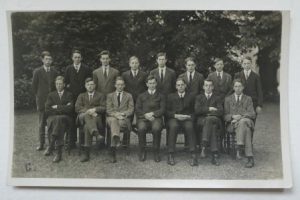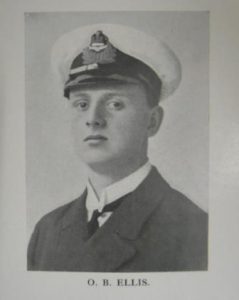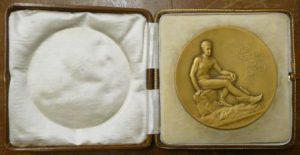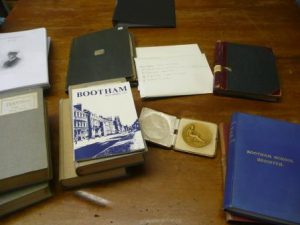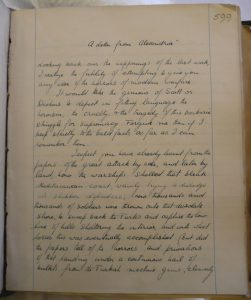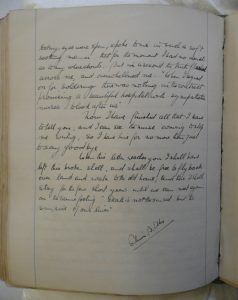Since November 16th there have been parties continuously at the sheds, and in all they have probably done about 200 dressings…
The work at the dressing station at Woesten has been continued, and the party there has varied in number from twelve to seventeen. Geoffrey W. Young was in command until November 18th, and since then Maurice Stansfield has had charge of the station,
The main part of the work continued to be the collection of wounded from various villages just behind the firing line, and the evacuation of cases too serious to be sent by train to hospitals in Furnes and Dunkirk. Probably altogether between 200 and 250 wounded have been brought back from the villages of Zuydschoot, Boesinghe, etc. ; and of these a considerable proportion would have been killed had they not been removed. On November 18th twenty-five were brought out of Boesinghe while the village was undergoing a heavy shell fire; on the second journey twenty-two shells fell while the cars were being loaded. On November 20th fifty more people, including some refugees, wounded civilians and nuns, were brought from the same village, which was again being fired on. The conduct of everyone concerned on both occasions was admirable.
About forty or fifty serious cases have been evacuated during the week to Furnes and Dunkirk. This work is a severe strain both on the cars and on the drivers, but is a most valuable part of the service that the unit is able to render, as it is undoubtedly the means of saving some men who otherwise would die. Some much larger and heavier cars than are yet at the disposal of the unit are really necessary for the purpose.
In addition to the above work, a certain amount of dressing has been done. On November 17th, after a heavy fight around Zuydschoot and Bixschoot, about 100 men were dressed, some of them for the first time since they were wounded. Altogether about 250 men have been dressed by members of the unit at Woesten during the last week. The personnel of the party at Woesten has been changed from time to time, so that in all thirty-five members of the unit have had some experience of conditions at the front.
But the work of the Woesten dressing station has been much hampered by the fact that the party there are only, so to speak, the guests of the French doctors in charge, and that they hold no official position. In consequence, they do not receive regular information as to where their services are required, and are compelled to find their own work. This involves much loss of time and energy, and means on some days that they are able to do little.
With the object of removing these disadvantages and of enabling us to start new stations of the same sort, we were anxious to make some formal arrangement for the authorisation of our activities by the French Government. This we have been fortunate enough to accomplish… The advantage of it is that, however many stations we may establish, or however wide a front we may be covering, they will all be in telephonic communication both with our new headquarters in Furnes and with each other. Our headquarters will be in direct touch with the French authorities, who will keep us informed every day as to the work which there is to do.
We have offered to the Mission Francaise at Furnes the services in the first instance of twenty-five men, including three doctors, and of nine cars. There is no doubt that in the near future we shall add to these numbers. There is also little doubt that, although in the first instance this work will be primarily that of collection, in a short time and as need appears we shall be able to institute dressing stations of our own.
Dunkirk.
PHILIP J. BAKER. November 21st, 1914.
From ‘Bootham’ magazine, December 1914, Vol VII, p115.
See the second update from the Ambulance Unit for the account from one week earlier.

